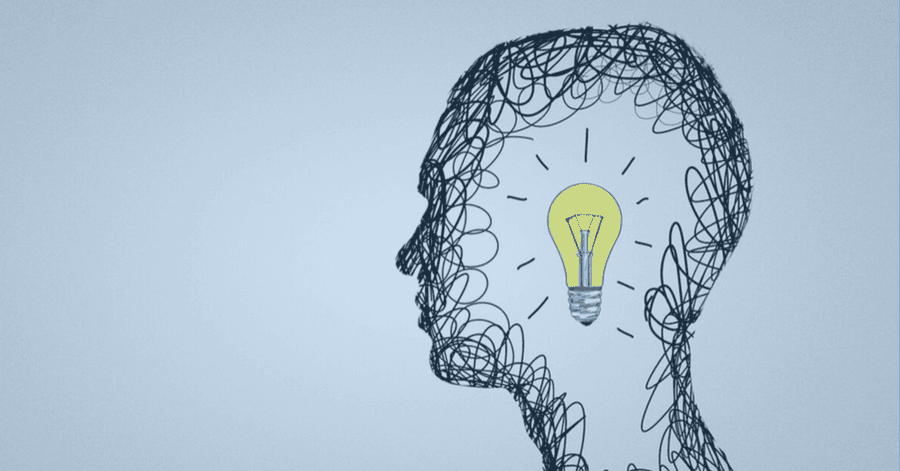Daniel Kahneman: The Thought Leader Interview
Curated from: strategy-business.com
Ideas, facts & insights covering these topics:
8 ideas
·13.2K reads
49
Explore the World's Best Ideas
Join today and uncover 100+ curated journeys from 50+ topics. Unlock access to our mobile app with extensive features.
The nature of the human judgment
People are not accustomed to thinking hard. They are often satisfied with a plausible answer that comes quickly to mind.
The prospect theory - the empirical exploration of risk assessment, loss aversion, and reference dependence, explains why people consistently behave in ways that traditional economic theory could not predict.
239
3.04K reads
The two-system theory
There are two thinking systems, each with distinct characteristics.
- System 1, or intuition. We think in this way most of the time. We respond to the world in ways that we're not conscious of and don't control. System 1 operations are fast, effortless, associative, and emotionally charged. They're governed by habit, so it's more difficult to modify or control.
- System 2, or reasoning. It is a deliberate reasoning system. It's slower, serial, effortful, and controlled.
219
1.93K reads
The law of small numbers
In statistical thinking, professional statisticians informally think the degree of the probability distribution in a small group will closely resemble the probability distribution in the overall population.
In other words, even people who should know better make these mistakes. When they're not computing seriously in System 2 mode (reasoning), they rely on their intuitions for simple problems.
193
1.82K reads
The perception of risk
The perception of and reaction to risk is often dismissed as emotional. The first thing that happens is you're afraid, and from that fear, you feel risk. So the view of risk is becoming less cognitive while emotion becomes dominant.
Emotion is about what might happen, not so much the probability. The more emotional the event is, the less sensible people are.
228
1.6K reads
Group decisions are not risk-free
- Groups are better equipped than individuals to recognize an answer as correct. But, when the whole group is susceptible to similar biases, groups are inferior to individuals.
- Polarization can occur in groups. One major bias in risky decision making is optimism, while doubts are suppressed. If an individual in a group is thinking differently to the group, it is easy to understand how they would suppress themselves.
- However, in groups of competing individuals, such as the corporate investment committee, the different dynamics can lead to better decision-making.
- In an internal marketplace where groups come to a consensus about the risks and rewards associated with their decisions, internal incentives can shape how the group perceives risks and rewards that are different from the reality of the risks and rewards in the external marketplace. The incentives can distort risk perception.
196
1.28K reads
Mechanisms needed for individuals and groups
Both individuals and groups need mechanisms to review how their decisions are made.
- Many businesses are averse to appointing someone to keep statistics on the decisions made and evaluate the biases, errors, the wrong forecasts, and the misjudged factors to make the process more rational.
- Individuals do not even keep track of having made the decision or forecast. We're also unaware of changing our minds even when we do change our minds. Instead, people reconstruct their past opinion and believe they always thought that.
202
1.12K reads
Decision analysis
Decision making can be divided into three systems: Emotional, rational, and perceptual systems.
The rational model is one where the beliefs and desires are supposed to be determined, but decision analysis of the last thirty years has shown that it doesn't work. Even people who are explicitly trained to used System 2 thinking (reasoning) in problems don't do so, even when they know they should.
It doesn't mean you shouldn't take decision analysis, just that decision analysis are not effective if decision-makers do not want to relinquish the intelligence function to somebody else.
199
1.26K reads
Why decision-makers don't like decision analysis
Decision analysis is based on the idea that decision making is a choice between gambles. Managers think that they are fighting risk in a controlled way. The idea that you are gambling is an admission that you have lost control. It is detestable to decision managers, and the reason they reject decision analysis.
It is advisable for organizations to dedicate some effort to study their own decision processes and their own mistakes, and to keep track so they can learn from those mistakes.
198
1.11K reads
IDEAS CURATED BY
Aurora M.'s ideas are part of this journey:
Learn more about problemsolving with this collection
How to balance flexibility and structure in a hybrid team environment
Understanding the challenges of managing a hybrid team
How to maintain team cohesion
Related collections
Similar ideas
5 ideas
5 Habits That Make Me Feel Like An Actual Adult
thefinancialdiet.com
2 ideas
15 ideas
13 Pieces of Wisdom from the 13th century
medievalists.net
Read & Learn
20x Faster
without
deepstash
with
deepstash
with
deepstash
Personalized microlearning
—
100+ Learning Journeys
—
Access to 200,000+ ideas
—
Access to the mobile app
—
Unlimited idea saving
—
—
Unlimited history
—
—
Unlimited listening to ideas
—
—
Downloading & offline access
—
—
Supercharge your mind with one idea per day
Enter your email and spend 1 minute every day to learn something new.
I agree to receive email updates

